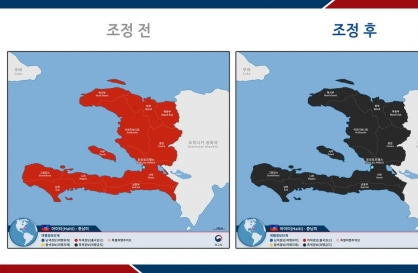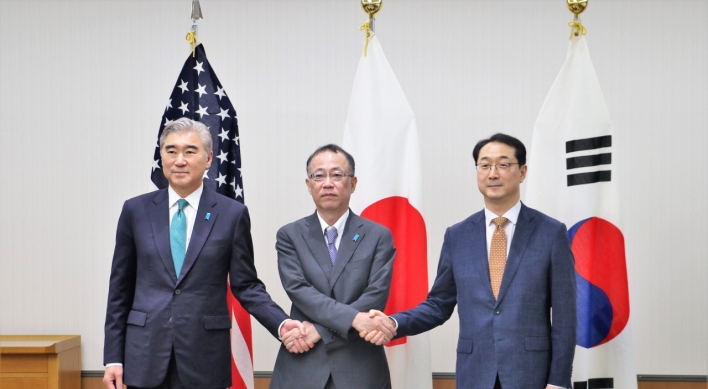Hotels, especially five-star ones in Seoul, earned much more from restaurants, conventions and weddings than from room charges.
At five-star, or superdeluxe, hotels with more than 300 guest rooms, income from food and other services amounted to more than twice the revenue of room charges in 2011, according to data from the Financial Supervisory Service and Statistics Korea.
As for the 23 superdeluxe hotels with 300-plus guest rooms in Seoul, room charges accounted for 29.1 percent of their entire sales, food 29.2 percent and other services 41.7 percent, indicating the importance of weddings and conventions as a source of income for hotels.
Large international conventions at Lotte Hotel’s largest Crystal Ballroom, for example, can cost over 100 million won per day depending on the grade of food served and the size of the space used.
“We don’t make much from weddings, but we do many of the major international conventions held in Seoul,” said Lotte Hotel spokesman Park Min-kyuk.
“Maintenance of restaurants costs a lot, so other than our buffet restaurant, our restaurants aren’t really profitable.”
Top hotels like Hotel Shilla, InterContinental Hotel, Westin Chosun Hotel, Grand Hyatt Seoul and Sheraton Walkerhill Hotel are among the most popular for weddings, which can cost more than 200,000 won per guest.
The Fair Trade Commission is looking into five-star hotel wedding halls’ tie-in sales practices, in which they make the bride and groom pay for expensive flowers, wine and special stage decor.
Superdeluxe hotels on the nation’s top resort spot Jeju Island, on the other hand, made more from room charges.
Room charges made up 52.1 percent of the combined sales of seven five-star hotels with more than 300 rooms on Jeju. Thirty-three percent was income from food and the rest from other services.
Nationwide, room charges accounted for 40 percent (2.13 trillion won) of the combined sales of 569 hotels (5.34 trillion won) in 2011, the FSS data showed. Thanks to the rising number of foreign tourists, the portion of room charges continued to increase from 32.3 percent in 2007 to 38.2 percent in 2009. Income from food (31 percent) and other services such as social functions (29 percent) took up 60 percent of the hotels’ combined sales in 2011.
Only about 9.3 percent of hotels in Korea are superdeluxe hotels, but they account for 63.6 percent (3.4 trillion won) of the combined sales of all hotels. In addition to the 23 in Seoul, there are 10 superdeluxe hotels in Busan, seven on Jeju, four in Incheon, three in North Gyeongsang Province, two each in Daegu and Gangwon Province, and one each in Gwangju and North Chungcheong Province.
Small and medium-sized hotels made more money from room charges (50.9 percent) in 2011 than other services. The combined sales of 145 hotels with between 100 and 300 guest rooms stood at 1.31 trillion won.
The total number of hotel employees was 37,759 nationwide, and 47.6 percent of them were employed by superdeluxe hotels.
By Kim So-hyun (sophie@heraldcorp.com)
At five-star, or superdeluxe, hotels with more than 300 guest rooms, income from food and other services amounted to more than twice the revenue of room charges in 2011, according to data from the Financial Supervisory Service and Statistics Korea.
As for the 23 superdeluxe hotels with 300-plus guest rooms in Seoul, room charges accounted for 29.1 percent of their entire sales, food 29.2 percent and other services 41.7 percent, indicating the importance of weddings and conventions as a source of income for hotels.
Large international conventions at Lotte Hotel’s largest Crystal Ballroom, for example, can cost over 100 million won per day depending on the grade of food served and the size of the space used.
“We don’t make much from weddings, but we do many of the major international conventions held in Seoul,” said Lotte Hotel spokesman Park Min-kyuk.
“Maintenance of restaurants costs a lot, so other than our buffet restaurant, our restaurants aren’t really profitable.”
Top hotels like Hotel Shilla, InterContinental Hotel, Westin Chosun Hotel, Grand Hyatt Seoul and Sheraton Walkerhill Hotel are among the most popular for weddings, which can cost more than 200,000 won per guest.
The Fair Trade Commission is looking into five-star hotel wedding halls’ tie-in sales practices, in which they make the bride and groom pay for expensive flowers, wine and special stage decor.
Superdeluxe hotels on the nation’s top resort spot Jeju Island, on the other hand, made more from room charges.
Room charges made up 52.1 percent of the combined sales of seven five-star hotels with more than 300 rooms on Jeju. Thirty-three percent was income from food and the rest from other services.
Nationwide, room charges accounted for 40 percent (2.13 trillion won) of the combined sales of 569 hotels (5.34 trillion won) in 2011, the FSS data showed. Thanks to the rising number of foreign tourists, the portion of room charges continued to increase from 32.3 percent in 2007 to 38.2 percent in 2009. Income from food (31 percent) and other services such as social functions (29 percent) took up 60 percent of the hotels’ combined sales in 2011.
Only about 9.3 percent of hotels in Korea are superdeluxe hotels, but they account for 63.6 percent (3.4 trillion won) of the combined sales of all hotels. In addition to the 23 in Seoul, there are 10 superdeluxe hotels in Busan, seven on Jeju, four in Incheon, three in North Gyeongsang Province, two each in Daegu and Gangwon Province, and one each in Gwangju and North Chungcheong Province.
Small and medium-sized hotels made more money from room charges (50.9 percent) in 2011 than other services. The combined sales of 145 hotels with between 100 and 300 guest rooms stood at 1.31 trillion won.
The total number of hotel employees was 37,759 nationwide, and 47.6 percent of them were employed by superdeluxe hotels.
By Kim So-hyun (sophie@heraldcorp.com)
-
Articles by Korea Herald











![[New faces of Assembly] Architect behind ‘audacious initiative’ believes in denuclearized North Korea](http://res.heraldm.com/phpwas/restmb_idxmake.php?idx=644&simg=/content/image/2024/05/01/20240501050627_0.jpg&u=20240501225745)







